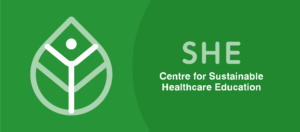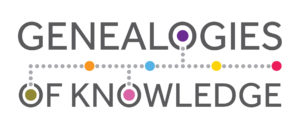This project, funded by UiO:Democracy, explores how medical knowledge is mobilized in debates about abortion through corpus-based analysis
At the heart of the controversy over abortion rights are disagreements about key democratic concepts such as rights, autonomy, privacy and freedom, making the right to abortion one of the most contested in the world. MEDRA explores the intersection of medical knowledge and democracy in this context, focusing on how medical knowledge is deployed as a technique of control over the population, determining the limits of freedom of legal subjects, and how it is appealed to by grassroots organisations in pursuit of very different objectives. Entangled in competing political interests and ideologies, with direct consequences for democratic processes and social practices, the question of how medical knowledge(s) is/are being mobilised in contemporary abortion debates and to what ends is key to safeguarding the rights of all concerned and to addressing the objectives of SDG 5 (Gender Equality) and SDG 3 (Good Health and Well-being) in particular, especially as research has shown that framing the issue of reproductive rights and the right to abortion in scientific, medical terms (rather than, for example, in terms of women’s rights) is more successful in effecting change.
Objectives
MEDRA will provide large-scale, corpus-based analyses of the co-constitutive relationship between democracy and medical knowledge in the debate about abortion as it unfolded since the early 1980s in three complementary case studies: the US, Ireland and Argentina. These are three representative democracies whose history of abortion legislation illustrates the complexity of different understandings of democracy, and the extent to which the concept of democracy itself is mobilised to support opposing positions. Despite disagreements on the meaning of democracy and its relation to abortion in all three cases, all sides of the debate agree that the right to abortion is inseparable from the right to health, and is therefore a medical matter. Constructing abortion as a scientific issue encourages both sides of the debate to mobilise medical knowledge as the ultimate authority in deciding who has more or less human rights and, by implication, who is more or less human (or, in legal terms, who has personhood). Precisely because medical knowledge is assumed to be ‘evidence-based’, ‘objective’ and ‘factual’, it lends itself readily to being exploited to support opposing and irreconcilable arguments in this debate. Medical knowledge is key not only because of the physical and mental health risks involved but also because it is appealed to for definitions of when life begins and when it has a right to be protected by law. Even in the most liberal legislation of Argentina, which is couched in carefully inclusive language and explicitly mentions the rights of women and ‘persons with capacity to gestate’, the limitations to such rights are based on health concepts such as ‘viability’.
Methodology
Our initial point of departure for the analysis of a range of competing discourses is key concepts related to medical knowledge and democratic governance, including democracy, rights, freedom, equality, viability, fetal heartbeat, health, life, privacy, personhood and autonomy. To examine these concepts, MEDRA will draw on and supplement two large electronic corpora built by the UK-based Genealogies of Knowledge (GoK) project and the Oslo Medical Corpus (OMC), currently being built by the Centre for Sustainable Healthcare Education (SHE) in collaboration with the GoK Research Network. These corpora consist of millions of words sourced from different genres and sites of interaction and featuring many texts that engage with issues of democracy and rights (GoK) and reproductive health and sustainable development (OMC). MEDRA will add a substantial volume of relevant material to these corpora. In line with the overarching framework of democracy and knowledge production that guides this project, we will adopt a typology of actors with key roles in shaping the debate:
(a) legal experts, represented by key legal documents and opinion articles in major legal journals;
(b) medical experts and institutions, represented by health policy reports and opinion articles in major journals of health;
c) civil society, represented by the discourse of NGOs and religious and feminist lobby groups.
The research team will combine large-scale, corpus-based, critical analysis of the medical, legal and grassroots discourses under study with narrative analysis, building on earlier work by members of the team. Narratives can either conform to mainstream accounts of a given issue or they can be subversive, and narrative analysis is thus able to capture both mainstream, official accounts of the intersection of democracy and abortion rights (as expressed in judicial rulings and the discourse of health institutions, for instance) as well as dissenting voices on both sides of the debate. Key narrative patterns accompanying the clustering of specific sets of concepts in the corpus will be analysed alongside discursive patterns that point to alternative understandings of these concepts. We expect these clusters to vary across different discourses and to be associated with different narrative characters, events, temporal outlines, and patterns of emplotment. Narrative analysis will allow us to answer questions such as who are the key characters in the discourse of each type of actor, what roles are they cast into, how are they emplotted in relation to specific events, and what events and phenomena are depicted as key to assessing the legitimacy or otherwise of abortion.
For further information, visit UiDemocracy website.
Funding
Contact
Eivind Engebretsen and Mona Baker
Participants
Collaborators
Genealogies of Knowledge Research Network



